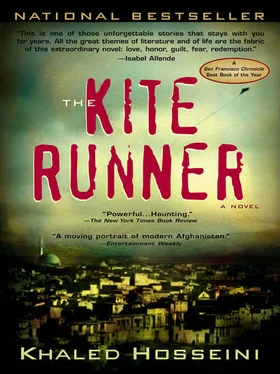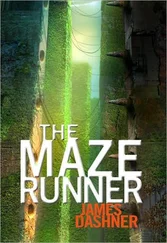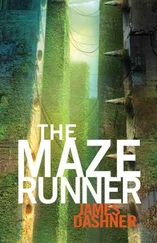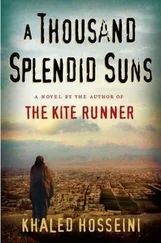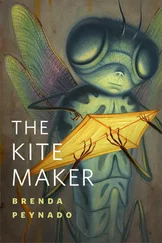But we found him about a hundred yards from the mosque, sitting in the half-full parking lot, on an island of grass. Fayyaz pulled up to the island and let me out. “I have to get back,” he said.
“That’s fine. We’ll walk back,” I said. “Thank you, Mr. Fayyaz. Really.”
He leaned across the front seat when I got out. “Can I say something to you?”
“Sure.”
In the dark of twilight, his face was just a pair of eyeglasses reflecting the fading light. “The thing about you Afghanis is that… well, you people are a little reckless.”
I was tired and in pain. My jaws throbbed. And those damn wounds on my chest and stomach felt like barbed wire under my skin. But I started to laugh anyway.
“What… what did I…” Fayyaz was saying, but I was cackling by then, full-throated bursts of laughter spilling through my wired mouth.
“Crazy people,” he said. His tires screeched when he peeled away, his taillights blinking red in the dimming light.
“YOU GAVE ME A GOOD SCARE,” I said. I sat beside him, wincing with pain as I bent.
He was looking at the mosque. Shah Faisal Mosque was shaped like a giant tent. Cars came and went; worshipers dressed in white streamed in and out. We sat in silence, me leaning against the tree, Sohrab next to me, knees to his chest. We listened to the call to prayer, watched the building’s hundreds of lights come on as daylight faded. The mosque sparkled like a diamond in the dark. It lit up the sky, Sohrab’s face.
“Have you ever been to Mazar-i-Sharif?” Sohrab said, his chin resting on his kneecaps.
“A long time ago. I don’t remember it much.”
“Father took me there when I was little. Mother and Sasa came along too. Father bought me a monkey from the bazaar. Not a real one but the kind you have to blow up. It was brown and had a bow tie.”
“I might have had one of those when I was a kid.”
“Father took me to the Blue Mosque,” Sohrab said. “I remember there were so many pigeons outside the masjid , and they weren’t afraid of people. They came right up to us. Sasa gave me little pieces of naan and I fed the birds. Soon, there were pigeons cooing all around me. That was fun.”
“You must miss your parents very much,” I said. I wondered if he’d seen the Taliban drag his parents out into the street. I hoped he hadn’t.
“Do you miss your parents?” he aked, resting his cheek on his knees, looking up at me.
“Do I miss my parents? Well, I never met my mother. My father died a few years ago, and, yes, I do miss him. Sometimes a lot.”
“Do you remember what he looked like?”
I thought of Baba’s thick neck, his black eyes, his unruly brown hair. Sitting on his lap had been like sitting on a pair of tree trunks. “I remember what he looked like,” I said. “What he smelled like too.”
“I’m starting to forget their faces,” Sohrab said. “Is that bad?”
“No,” I said. “Time does that.” I thought of something. I looked in the front pocket of my coat. Found the Polaroid snapshot of Hassan and Sohrab. “Here,” I said.
He brought the photo to within an inch of his face, turned it so the light from the mosque fell on it. He looked at it for a long time. I thought he might cry, but he didn’t. He just held it in both hands, traced his thumb over its surface. I thought of a line I’d read somewhere, or maybe I’d heard someone say it: There are a lot of children in Afghanistan, but little childhood. He stretched his hand to give it back to me.
“Keep it,” I said. “It’s yours.”
“Thank you.” He looked at the photo again and stowed it in the pocket of his vest. A horse-drawn cart clip-clopped by in the parking lot. Little bells dangled from the horse’s neck and jingled with each step.
“I’ve been thinking a lot about mosques lately,” Sohrab said.
“You have? What about them?”
He shrugged. “Just thinking about them.” He lifted his face, looked straight at me. Now he was crying, softly, silently. “Can I ask you something, Amir agha?”
“Of course.”
“Will God…” he began, and choked a little. “Will God put me in hell for what I did to that man?”
I reached for him and he flinched. I pulled back. “Nay. Of course not,” I said. I wanted to pull him close, hold him, tell him the world had been unkind to him , not the other way around.
His face twisted and strained to stay composed. “Father used to say it’s wrong to hurt even bad people. Because they don’t know any better, and because bad people sometimes become good.”
“Not always, Sohrab.”
He looked at me questioningly.
“The man who hurt you, I knew him from many years ago,” I said. “I guess you figured that out that from the conversation he and I had. He… he tried to hurt me once when I was your age, but your father saved me. Your father was very brave and he was always rescuing me from trouble, standing up for me. So one day the bad man hurt your father instead. He hurt him in a very bad way, and I… I couldn’t save your father the way he had saved me.”
“Why did people want to hurt my father?” Sohrab said in a wheezy little voice. “He was never mean to anyone.”
“You’re right. Your father was a good man. But that’s what I’m trying to tell you, Sohrab jan. That there are bad people in this world, and sometimes bad people stay bad. Sometimes you have to stand up to them. What you did to that man is what I should have done to him all those years ago. You gave him what he deserved, and he deserved even more.”
“Do you think Father is disappointed in me?”
“I know he’s not,” I said. “You saved my life in Kabul. I know he is very proud of you for that.”
He wiped his face with the sleeve of his shirt. It burst a bubble of spittle that had formed on his lips. He buried his face in his hands and wept a long time before he spoke again. “I miss Father, and Mother too,” he croaked. “And I miss Sasa and Rahim Khan sahib. But sometimes I’m glad they’re not…they’re not here anymore.”
“Why?” I touched his arm. He drew back.
“Because-” he said, gasping and hitching between sobs, “because I don’t want them to see me… I’m so dirty.” He sucked in his breath and let it out in a long, wheezy cry. “I’m so dirty and full of sin.”
“You’re not dirty, Sohrab,” I said.
“Those men-”
“You’re not dirty at all.”
“-they did things… the bad man and the other two… they did things… did things to me.”
“You’re not dirty, and you’re not full of sin.” I touched his arm again and he drew away. I reached again, gently, and pulled him to me. “I won’t hurt you,” I whispered. “I promise.” He resisted a little. Slackened. He let me draw him to me and rested his head on my chest. His little body convulsed in my arms with each sob.
A kinship exists between people who’ve fed from the same breast. Now, as the boy’s pain soaked through my shirt, I saw that a kinship had taken root between us too. What had happened in that room with Assef had irrevocably bound us.
I’d been looking for the right time, the right moment, to ask the question that had been buzzing around in my head and keeping me up at night. I decided the moment was now, right here, right now, with the bright lights of the house of God shining on us.
“Would you like to come live in America with me and my wife?”
He didn’t answer. He sobbed into my shirt and I let him.
FOR A WEEK, neither one of us mentioned what I had asked him, as if the question hadn’t been posed at all. Then one day, Sohrab and I took a taxicab to the Daman-e-Koh Viewpoint – or “the hem of the mountain.” Perched midway up the Margalla Hills, it gives a panoramic view of Islamabad, its rows of clean, tree-lined avenues and white houses. The driver told us we could see the presidential palace from up there. “If it has rained and the air is clear, you can even see past Rawalpindi,” he said. I saw his eyes in his rearview mirror, skipping from Sohrab to me, back and forth, back and forth. I saw my own face too. It wasn’t as swollen as before, but it had taken on a yellow tint from my assortment of fading bruises.
Читать дальше
